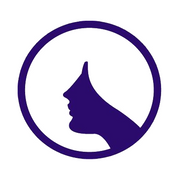A Guide to Urinary Incontinence & Bladder Control Problems

Urinary incontinence occurs when urine is accidentally released. This bladder control issue is a symptom that can result from a number of causes and commonly occurs in adult women and those who have undergone certain types of surgeries. Although it does not present any major health risks, incontinence can be a frustrating challenge for women experiencing it. If you’re struggling with bladder control, the women’s health team at Women’s Clinic of Lincoln, P.C. in Lancaster County, NE, sheds light on the issue, below.
An Overview of Urinary Incontinence & Bladder Control Challenges
Are There Different Types of Urinary Incontinence?
There are a few categories of urinary incontinence: stress, urge, and overflow incontinence. Stress incontinence is characterized by leaks occurring when the bladder undergoes pressure and is usually caused by activities such as running, sneezing, coughing, or heavy lifting. With urge incontinence, you may experience a sudden and intense urge to urinate followed by an involuntary release. Overflow incontinence happens when the bladder fails to release completely, resulting in a frequent dribbling of urine.
What Causes These Conditions?
 Persistent bladder control problems can occur with menopausal changes. Estrogen, which helps maintain a healthy bladder and urethra, is produced in lesser amounts during and after menopause, which may lead to tissue deterioration. A hysterectomy, in which some or all of the reproductive organs are removed, can compromise the pelvic floor muscles. This, too, can cause incontinence. Other factors, such as certain medications and pregnancy, can also lead to temporary bladder issues.
Persistent bladder control problems can occur with menopausal changes. Estrogen, which helps maintain a healthy bladder and urethra, is produced in lesser amounts during and after menopause, which may lead to tissue deterioration. A hysterectomy, in which some or all of the reproductive organs are removed, can compromise the pelvic floor muscles. This, too, can cause incontinence. Other factors, such as certain medications and pregnancy, can also lead to temporary bladder issues.
How Is Urinary Incontinence Treated?
The type of treatment recommended by the gynecologist will depend on the cause of your urinary incontinence. Non-invasive tactics such as lifestyle changes may be recommended at first, including bladder training and fluid management. In patients with stress incontinence, you can also do pelvic floor exercises to strengthen the muscles that control urination. You can also take certain medications or undergo a surgical procedure to find lasting comfort and relief.
If you’re struggling with bladder control issues, contact Women’s Clinic of Lincoln, P.C. Their compassionate team of women’s health providers excels in providing targeted and effective treatment for urinary incontinence to help patients regain their quality of life. Learn more about the practice’s treatment options by visiting their website. Call (402) 434-3370 to schedule an appointment.
About the Business
Have a question? Ask the experts!
Send your question

